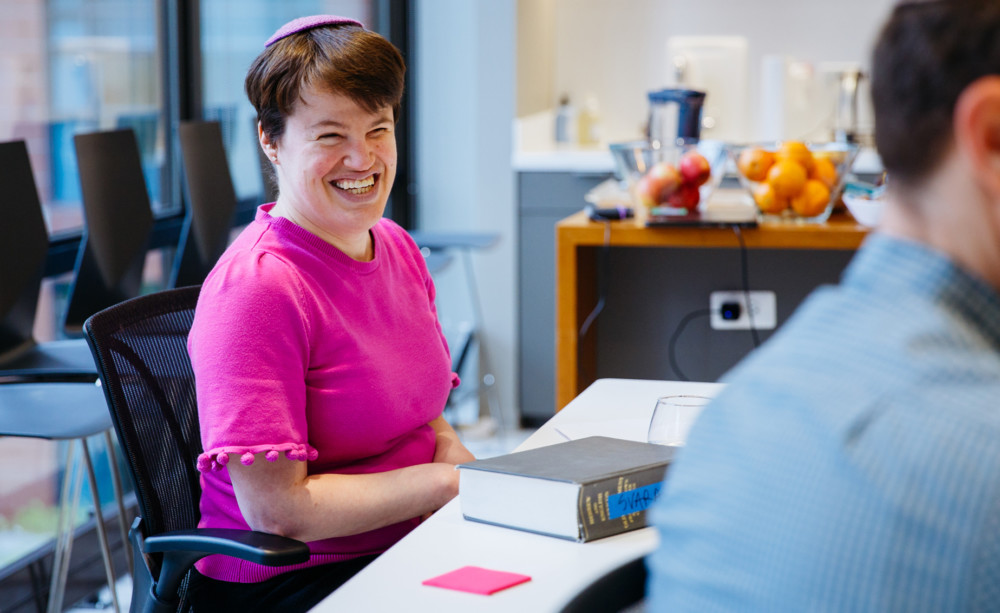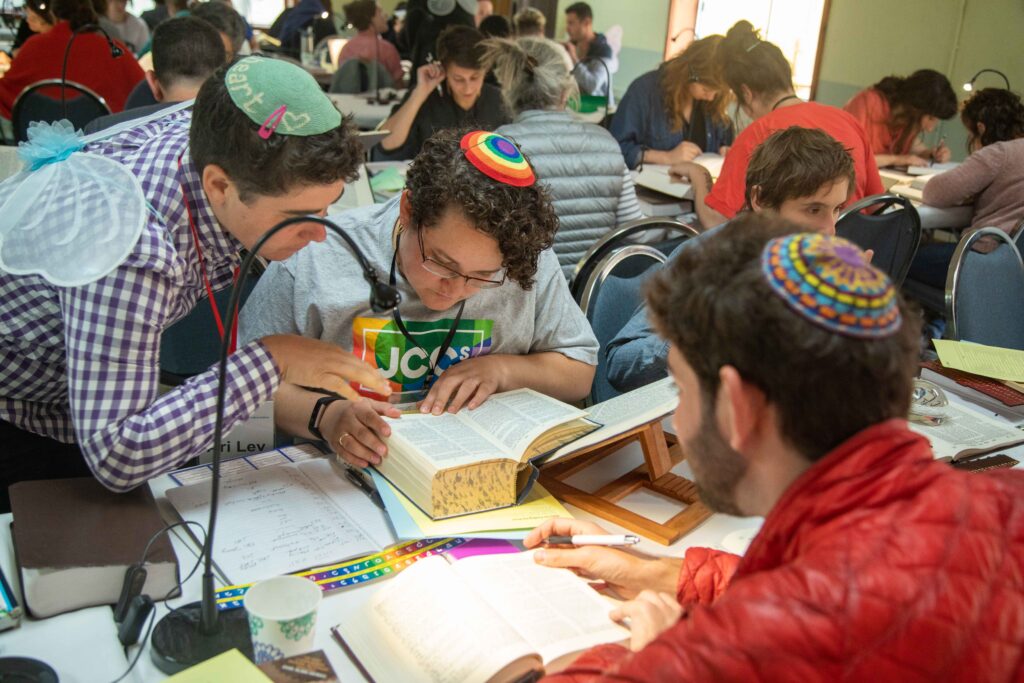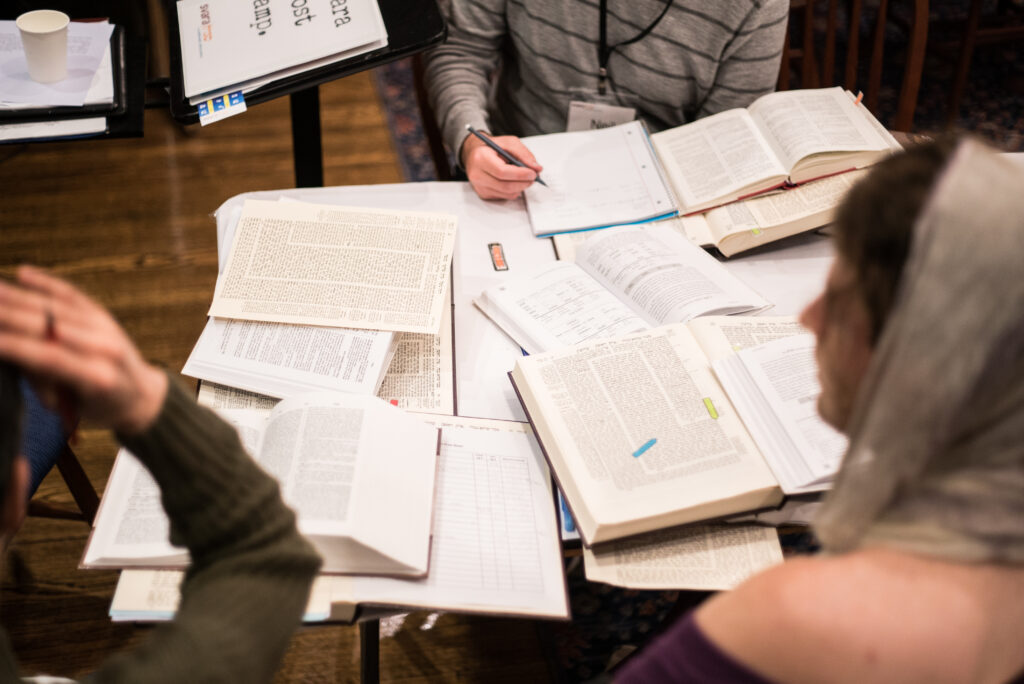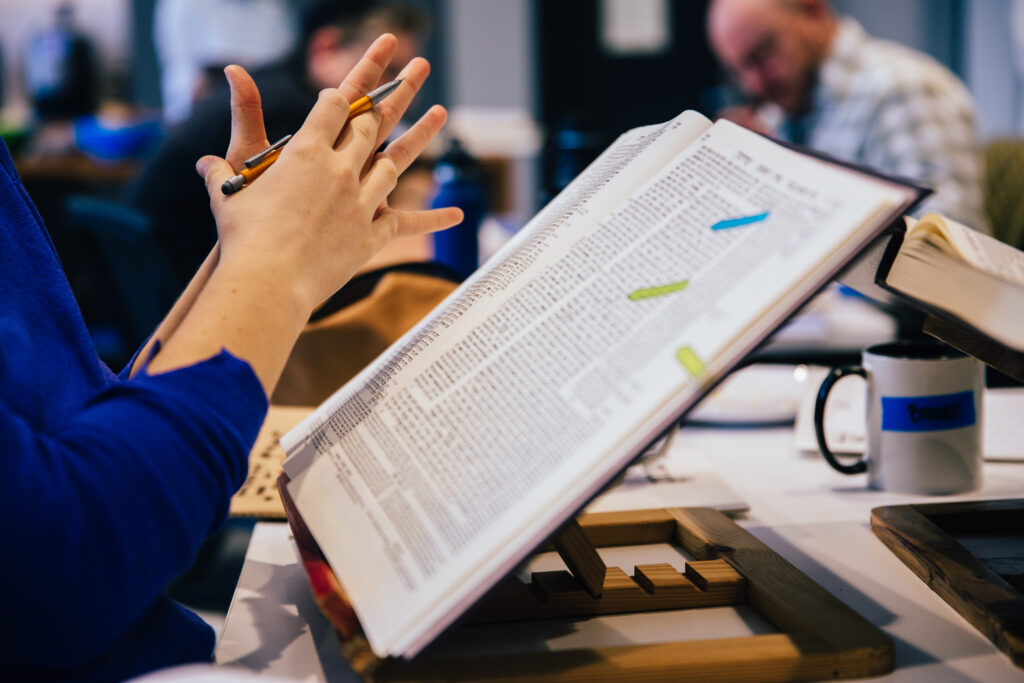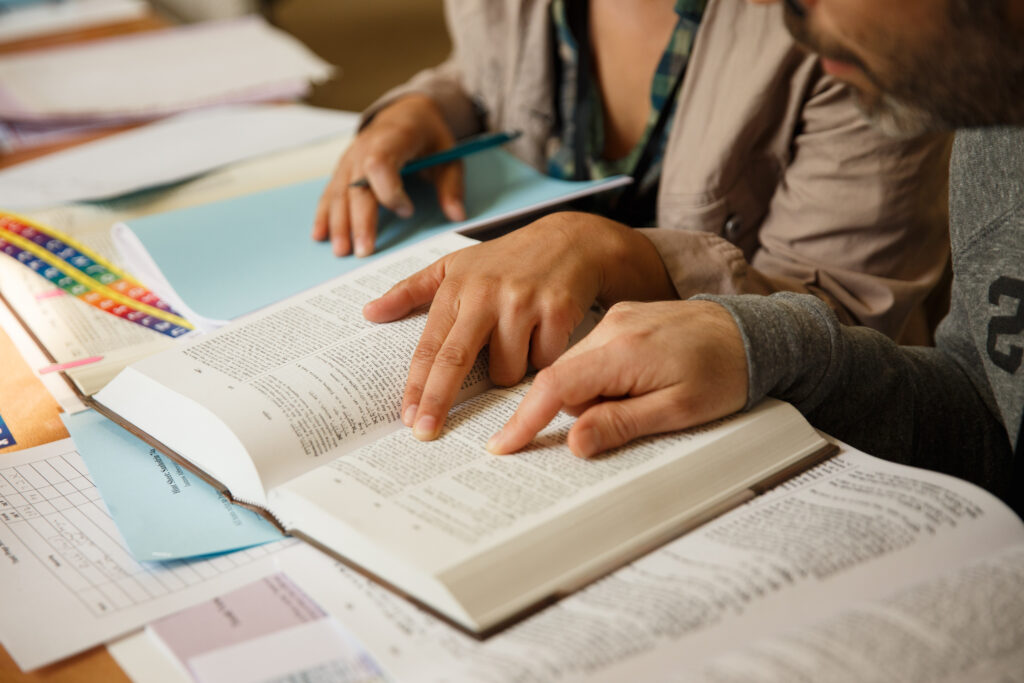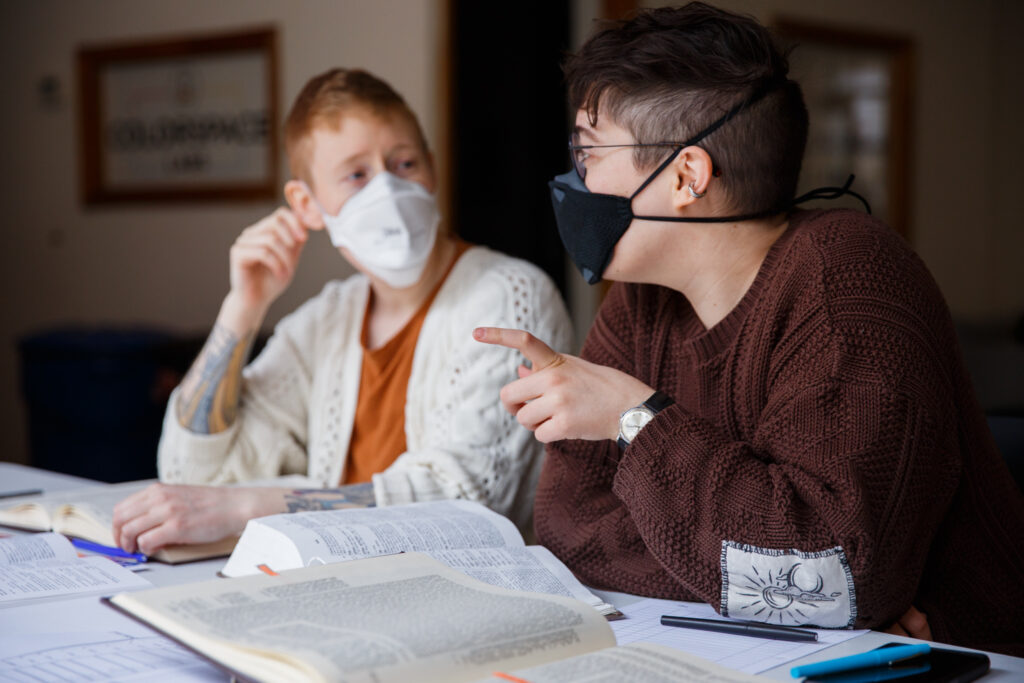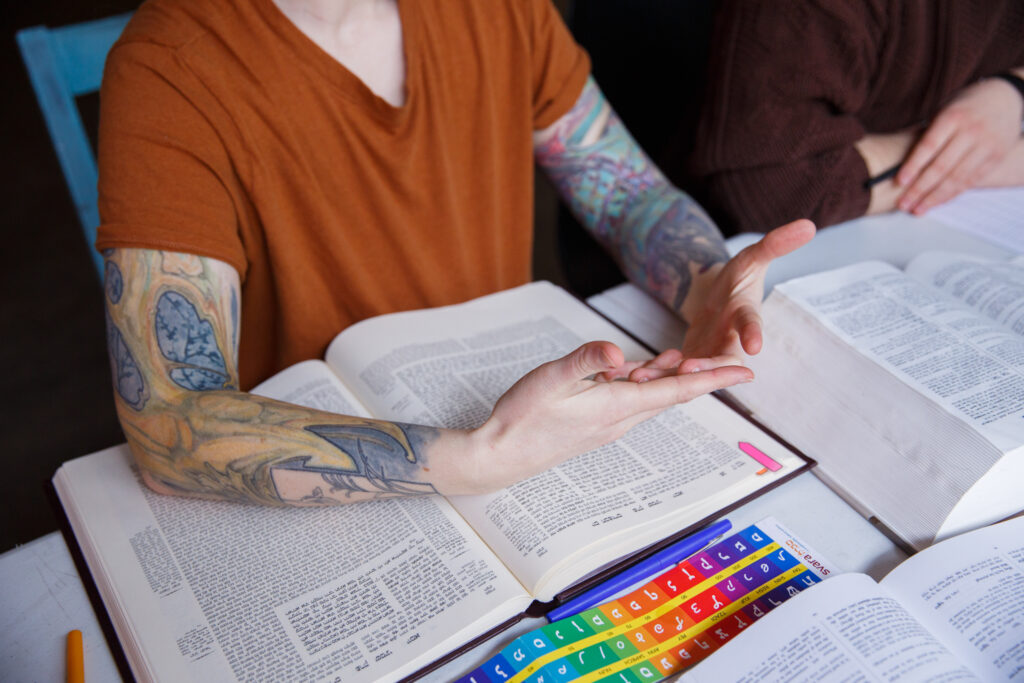It is hard, nay impossible, to adequately capture the feelings that came over me when I learned about the passing of a dear friend: the fierce and unapologetic activist for disability justice and lover of Torah, Sheryl Grossman. May her memory be a blessing. I dedicate my learning today to her.
I found out about Sheryl’s passing in the way so many of us do these days. It was a typical Tuesday morning (or so I thought). I was taking a moment to scroll Facebook and there it was. I slumped over my desk upon receiving the news, the traditional words we say upon hearing of a death far from my consciousness. What came out first was a cry of disbelief. I knew she struggled with a multitude of cancers for the better part of seventeen years. I knew she often experienced scares and interfaced with the medical system in ways I frankly cannot even begin to fully comprehend. And yet, I was left speechless. “Blessed is the true judge.” What more can one say? And how impossibly hard is it to say that? True judge? How can I, how can anyone, wrap their minds around that when a person leaves the world so young?
Sheryl is the second friend I have lost in the past few months. Both were people I knew through disability community. Both were folks I had taught and learned with. Both friends challenged me to think about disability and Torah more broadly. From Sheryl in particular, I learned the importance of finding ourselves in Torah. This isn’t done by stretching narratives to fit us but rather by reclaiming our disabled ancestors who are right there in the text. As mentioned at her funeral, one of Sheryl’s greatest mentors was Moshe Rabbeinu—Moses our teacher who, it seems clear from the pshat (or simple read of the text) had a disability of some sort.
It was Sheryl who challenged me to read Exodus 4:10-16 in a radical way. I met Sheryl while I was in rabbinical school, which was a time of great existential angst for me. Much of that was internal. Some was external, though the internal parts were by far the hardest to navigate. I was feeling confused and alienated from Torah, and yet I knew in my neshama that I wanted and needed to be in relationship with Torah. Sheryl, whether she knew it at the time, was a model of possibility for me.
In the fourth chapter of the Book of Exodus, we encounter a famous dialogue between G-d and Moshe. G-d has chosen Moshe to lead the children of Israel out of mitzrayim. Moshe demurs, saying that as a man of few words, who will listen to him? Without missing a beat, G-d replies rhetorically, asking who makes a person as they are—blind or sighted, deaf or hearing, speaking or nonspeaking? “Is it not I, G-d, your G-d?”
For years, I argued vigorously that this passage assumed disability to be a punishment, G-d-forbid, and that this passage was the foundation of the moral model of disability: a model of disability that assumes disability exists due to sin, G-d-forbid. G-d makes us as we are, so all the ableism and oppression we encounter is just something we’re going to have to deal with. I find myself taken aback by the self-loathing in that read now. How often do we read texts in weaponizing ways, not only because that’s the tradition we’ve received, G-d-forbid, but even worse— because we believe it. How often do we understand Torah through a distorted prism that tells us more about ourselves and the brokenness in our souls than it does about the written or oral text?
Exodus 4:10-16 is now my favorite text in Torah, and it’s something I strive to recite daily alongside the blessings I make over Torah study. That transformation came about due in large measure to Sheryl’s unapologetic challenge to me: “Have you completely forgotten the second half of the passage?” G-d responds to Moshe that, of course, G-d understands Moshe is not an orator and provides him with a reasonable accommodation. Aaron, his brother, will be his attendant. It is from here that the Torah affirms the crucial need for attendant care and accommodations.
I could hear and absorb that from Sheryl in ways I might not have been able to from anyone else. Sheryl, who cared as much about disability rights as she did about keeping Shabbat in an Orthodox manner. Sheryl, who would accept nothing less than showing up as her full, authentic self, including her religious self. Being disabled and religious were not mutually exclusive things, she reminded me again, again, and again. I often felt between two worlds—wanting to connect with observant disabled folks but not identifying as Orthodox. Sheryl helped bridge that gap for me. But even more than that, she showed me how I, too, could find myself in Torah.
As Rabbi Lappe reminds us in her Crash Talk, we all have our donkey stories—those stories that jump out at us because they give words to our experiences. G-d giving Moshe a reasonable accommodation (though of course the Torah doesn’t know or use that term) helped me realize that perhaps, G-d reminds Moshe that he, too, is created in G-d’s image, specifically because Moshe might have forgotten otherwise. Many of us forget our inherent worth because of the social positions we find ourselves in. We forget because of old, tired, harmful narratives. We forget because of our family systems. We forget for so many reasons. With Sheryl’s help, I have come to believe that G-d reminds us that we are created in G-d’s image again in this passage because it is so easy to forget—so easy to think of ourselves as subhuman.
I often wonder about Moshe’s upbringing in Pharaoh’s palace. I imagine, though of course can never know with any degree of certainty, that Moshe might have been taunted or humiliated because of how he spoke. Perhaps he, too, wondered whether he’d ever fit in with his own people. Perhaps, as Brené Brown writes about in her latest work Atlas of the Heart, Moshe feels like he’ll have to fit in by fitting a mold that doesn’t fit him. How many of us feel that way? How often did I wonder if I’d ever fit in with Jewish community, though my heart and soul longed to? How often did I wonder if I was on the wrong life path? How often did I ask myself, “who will listen to me, a blind female rabbi with many marginalized identities?” What I was asking, ultimately, was “am I good enough? Who am I?” The voice that told me I’d never measure up to an abled, sighted ideal that I could never achieve was making its presence known in destructive ways.
Sheryl’s funeral ended with a recitation of her favorite poem (which also happens to be my favorite poem), You Get Proud by Practicing, written by the incredible disabled poet Laura Hershey, may her memory be a blessing. Listening to the live stream of the service, I alternately cried and tried (through my tears) to recite the poem along with the reader. This powerful poem is an antidote to all of the self-loathing and internalized oppression that many of us struggle with every day. Feeling at home with oneself unapologetically is a spiritual practice in and of itself—one we must engage with every day. I know I have much work to do myself. I urge us all, whether we identify with disability or not, to integrate this poem’s powerful message into our lives and souls, just as Sheryl did. One of Sheryl’s most oft-repeated lines was “my mouth is my biggest organ and I’m not afraid to use it”! Amein v’amein, friend. Rest in power.

